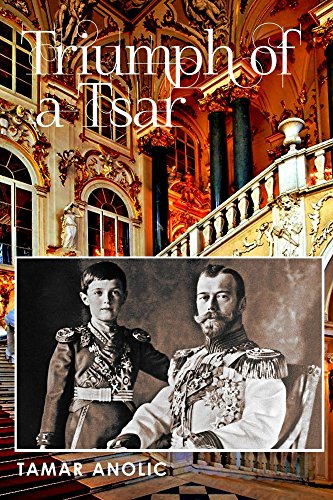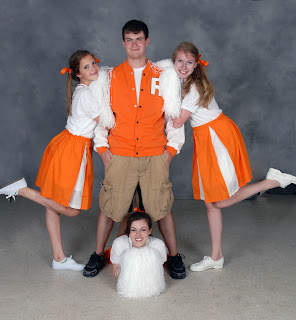I came across this gem by reading a discussion in the Historical Novel Society. If you love alternative history along the lines of The Man in the High Castle, do not miss Triumph of a Czar.
Synopsis:
Triumph of a Tsar is a work of alternate historical fiction in which the Russian Revolution is averted, and the hemophiliac Alexei, son of Tsar Nicholas II, comes to the throne. In August, 1920, sixteen-year-old Alexei is enjoying his birthday celebrations when Nicholas dies suddenly. Overnight, Alexei becomes tsar of an empire that covers one-sixth of the world’s landmass. The Great War is over, but Russia is still suffering from the devastation and poverty that it brought. Communists such as Lenin, Stalin and Trotsky view the political situation as ripe for revolution, but they realize that the popular Alexei stands in their way. To make matters worse, Alexei’s hemophilia, the disease that has threatened him his whole life, returns to haunt him. With his life in constant danger from internal threats, Alexei must also navigate the external threats of fascism and Adolph Hitler. Slowly, Hitler’s menace increases throughout Europe until he tries to kill Alexei himself. Only then does Alexei realize that another World War is the only way to stop his German enemy.
My thoughts:
The October Revolution is regarded by many as one of the greatest tragedies in Russian history, and the murder of the imperial family one of the cruelest regicides. (Growing up in the 1980s in what is now the former USSR I was told the opposite - that it was an act of justice). Tamar Anolic creates a gorgeous, eloquent, convincing revenge fantasy. I am so grateful for this novel, because it fills a gap in the pantheon of alternative history. My husband and I are both into alternative history and have often discussed the various what-if scenarios. What if the Russian Revolution never occurred? Or what if the Whites had won the Russian Civil War? I am so glad that someone has finally written an alternative history novel about post WWI Russia. Czar Nicholas II is given a dignified natural death. His beautiful daughters go on to marry and have offspring of their own. And his son Alexei, the fragile hemophiliac child so coddled by his mother becomes the next Czar at the age of 16. The first thing he does is shoot Lenin and fire the chief of police for negligence. His actions may seem shocking and impetuous, but they really make a lot of sense. The teenage monarch certainly does not pull any punches. He is more prepared to roll up his sleeves and embrace his new role. His determination to serve his empire and bring it on par with other Western European nations often makes him forget about his own illness. At times he tries to downplay the severity of his affliction. At any given moment, he is one cut or bump away from bleeding to death. So he cannot afford to be impetuous. His illness has taught him self-restraint. On one hand Alexei had been coddled his whole life, but on another hand he had been forced to mature faster. It's a two edged sword. It is common for people who are used to deal with a life-altering illness.
I am very, very finicky about historical accuracy and cultural authenticity. I've read too many novels and seen too many movies depicting a cartoonish cardboard Russia speckled with cliches, and this novel definitely gets my stamp of approval. So many authors think it's enough to throw in references to bears, balalaikas, samovars and ushanka hats to create a sense of authenticity. Thankfully, this author does not resort to that. He does not need to rely on cliches. His knowledge of the era shines through his sharp, eloquent prose. For an alternative history novel to be effective, it has to be rooted in reality. The author has to be a political scientist and a military strategist. I cannot believe that this gem was not picked up by some major publisher like Random House. I would love to see it turned into an Amazon series.
I am very, very finicky about historical accuracy and cultural authenticity. I've read too many novels and seen too many movies depicting a cartoonish cardboard Russia speckled with cliches, and this novel definitely gets my stamp of approval. So many authors think it's enough to throw in references to bears, balalaikas, samovars and ushanka hats to create a sense of authenticity. Thankfully, this author does not resort to that. He does not need to rely on cliches. His knowledge of the era shines through his sharp, eloquent prose. For an alternative history novel to be effective, it has to be rooted in reality. The author has to be a political scientist and a military strategist. I cannot believe that this gem was not picked up by some major publisher like Random House. I would love to see it turned into an Amazon series.







/Kukushka/_4by3/_derived_jpg_q90_600x800_m0/org_054177.jpg?partner=allmovie_soap)